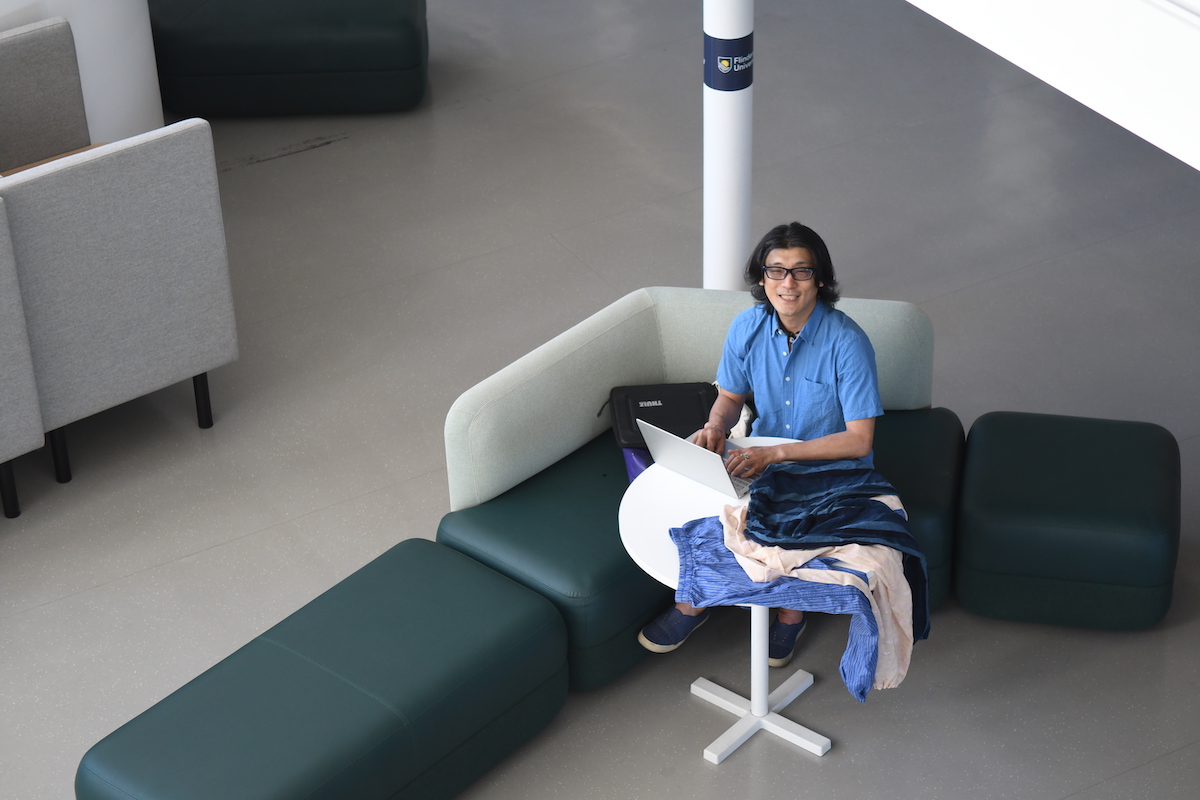
Having previously been a war correspondent in Baghdad, Dr Tets Kimura is now a researcher in art and cultural history. We asked about his extensive travels to more than 70 countries, and how this benefits his research work.
What is your role at Flinders?
I’m an interdisciplinary researcher in art/cultural history, fashion and Asian studies, and I am a doctoral supervisor for Endy Saputro on his thesis on Indonesian YouTube animation. I have also undertaken a role of casual teacher at Flinders, National Chengchi University (Taiwan) and Fukuoka Women’s University (Japan).
What journey brought you to Flinders University.
I came to South Australia 30 years ago from Tokyo as an exchange student to Mt Barker Waldorf School, and SA has been my home ever since. After high school, I decided to study at Flinders (along with my close friends) because of Flinders’ liberal atmosphere. I did my BA in philosophy in the 1990s, came back to do my PhD in International Relations in 2012, and received my PhD in 2019 with a thesis discussing Japanese fashion as a vehicle of Joseph Nye’s concept of soft power.
Before my PhD, I built my research skills through working as a journalist who reported on international affairs. In 2004, I reported the war from Baghdad, and after I came back to Australia, I reported on Australia-Japan relations, including the long-lasting whaling conflict. I spoke with senior Australian politicians including Malcolm Fraser – and I was one of the last reporters to talk to him, only a few months before his death.
Can you tell us a little about your research?
Since finishing my PhD, I have continued to research art and fashion at HASS as an academic status holder. My research has been supported by the Japan Foundation, Toshiba International Foundation, Australian Academy of the Humanities, South Australian History Trust, Australian Institute of Art History and National Library of Australia. In 2021, I was awarded an Asia Study Grant by the National Library of Australia to study the history of Japanese people in Australia. My findings will be published in the Journal of Australian Studies in late 2023.
At the end of 2022, I was awarded a Fellowship at the National Library of Australia to undertake research in Canberra for three months in 2023 and 2024, about a comprehensive history of Japanese fashion. The NLA holds Japanese fabrics as well as historical fashion and lifestyle magazines from Japan that are unavailable elsewhere in Australia.
What do you love most about your role?
I research areas of great interest to me, including Japanese/Asian fashion, art and Australia-Japan/Asia relations, including cultural interactions. It’s my long-term vision to research how influential Japanese fashion and creativity contributes to forming a regional identity of the Asia-Pacific which, of course, includes Australia.
What are you most proud of?
My first book, Exporting Japanese Aesthetics, was published in 2020 and launched at the Art Gallery of South Australia in 2021 by Ms Jing Lee (who was Assistant Minister to the SA Premier). I’m now finalising a book proposal on Japanese war art with my New Zealand research partner Associate Professor Richard Bullen (University of Canterbury), and in line with Australia’s New Cultural Policy that was announced on 30 January, I’ll submit an ARC DECRA proposal later this year to connect the region of Asia-Pacific through art, focusing on Australia-Japan relations, with the support of senior academics at Flinders and other Australian Universities. I’m proud that my research contributes to knowledge-building for contemporary international society.
How do you spend your spare time?
I’m passionate about travelling, having visited more than 70 countries. The most memorable place is Baghdad, but I also like the Himalayas and Caucasus mountains, and I exhibited a photo exhibition of the Himalayas at Flinders library in 2012. Last year, I visited Kinmen, a Taiwanese island located only 2 kilometres away from mainland China. Travelling allows me to feel ‘real world’ issues, and to think about research in an empirical way.

